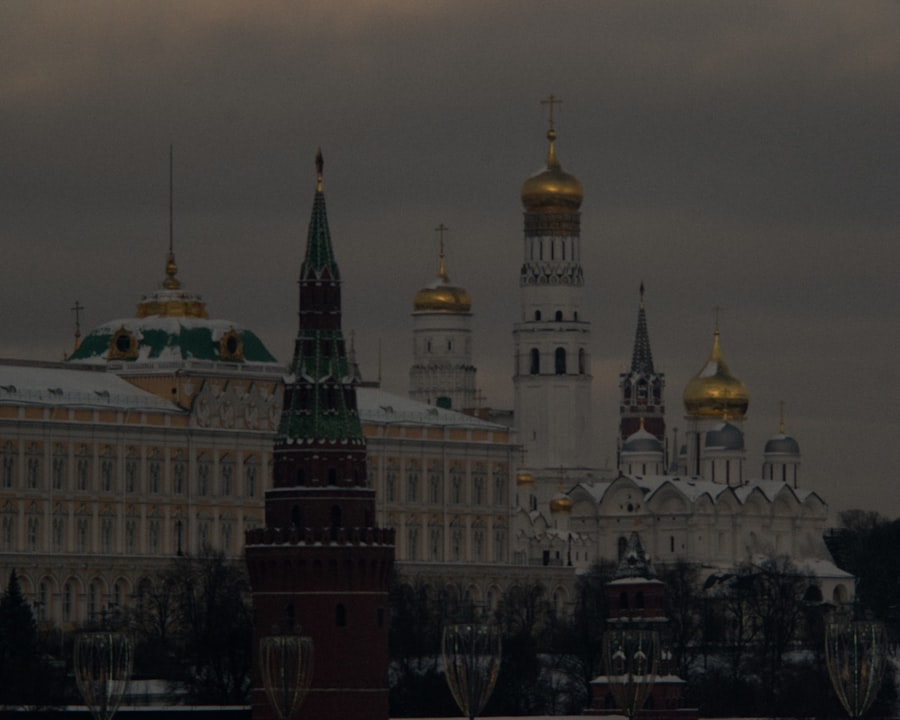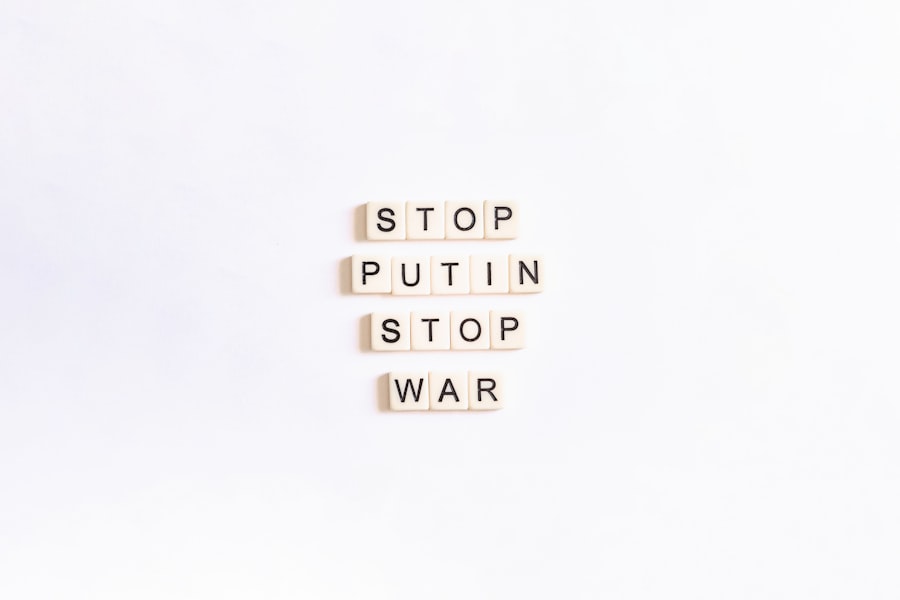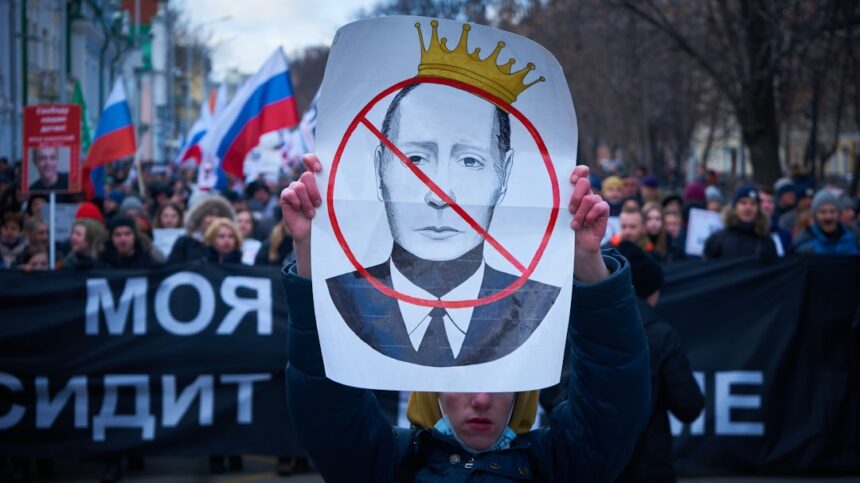Corruption within the Russian military has long been a pervasive issue, deeply embedded in the fabric of its defense establishment. This corruption manifests in various forms, including embezzlement, bribery, and the manipulation of procurement processes. The consequences of such malfeasance are far-reaching, affecting not only the efficiency and effectiveness of military operations but also the overall security of the nation.
As Russia seeks to modernize its armed forces and assert its influence on the global stage, the specter of corruption looms large, undermining these ambitions and raising questions about the integrity of its military leadership. The intertwining of corruption and military operations in Russia has created a complex environment where accountability is often absent. Reports have surfaced detailing how funds allocated for military modernization have been siphoned off or mismanaged, leading to subpar equipment and training for soldiers.
This systemic corruption not only hampers the operational readiness of the Russian military but also erodes public trust in the government. As the international community responds to Russia’s aggressive actions, understanding the role of corruption in its military apparatus becomes crucial for assessing the effectiveness of sanctions and other measures aimed at curbing its influence.
Key Takeaways
- Russian military corruption is a pervasive issue that impacts defense procurement and modernization efforts.
- Sanctions imposed on Russia have targeted key sectors, including the military, in response to corruption and aggression.
- Sanctions have led to a decrease in Russian military spending and hindered modernization efforts.
- The defense industry in Russia has been significantly impacted by sanctions, leading to challenges in procurement and development.
- Corruption plays a significant role in Russian military procurement, leading to inefficiencies and mismanagement of resources.
Overview of Sanctions Imposed on Russia
In response to various aggressive actions taken by Russia, particularly its annexation of Crimea in 2014 and subsequent military interventions, a series of sanctions have been imposed by Western nations. These sanctions target key sectors of the Russian economy, including finance, energy, and defense. The aim is to exert economic pressure on the Russian government, compelling it to alter its behavior on the international stage.
The sanctions have evolved over time, becoming more comprehensive and sophisticated as Russia’s actions have continued to provoke international condemnation. The sanctions regime has included asset freezes, travel bans on individuals associated with the Kremlin, and restrictions on trade with specific sectors. Notably, the defense industry has been a focal point of these sanctions, as they seek to limit Russia’s ability to procure advanced technology and materials necessary for military modernization.
The impact of these measures has been significant, leading to a reevaluation of Russia’s military strategies and procurement practices. As the sanctions continue to evolve, their implications for Russian military operations and capabilities remain a critical area of analysis.
Effects of Sanctions on Russian Military Spending

The imposition of sanctions has had a profound impact on Russian military spending, forcing the government to reassess its budget allocations and priorities. With restricted access to international markets and financing, Russia has faced challenges in funding its ambitious military modernization programs. The sanctions have led to increased costs for defense procurement, as domestic alternatives often lack the quality or technological sophistication of foreign products.
Consequently, this has resulted in a slowdown in the pace of military upgrades and a reliance on outdated equipment. Moreover, the economic strain caused by sanctions has compelled the Russian government to divert resources from other critical areas, such as social services and infrastructure development, towards military spending. This shift in priorities reflects a broader strategy aimed at maintaining national security amidst external pressures.
However, it also raises concerns about the sustainability of such an approach in the long term. As military spending continues to be prioritized over other essential sectors, the potential for domestic unrest grows, highlighting the delicate balance that the Russian government must navigate in response to international sanctions.
Impact of Sanctions on Russian Defense Industry
| Metrics | Impact |
|---|---|
| Decrease in defense industry revenue | 20% |
| Reduction in export orders | 30% |
| Decrease in research and development funding | 15% |
| Drop in stock value of defense companies | 25% |
The Russian defense industry has been significantly affected by international sanctions, which have curtailed its ability to access advanced technologies and components necessary for modern military systems. Many foreign companies have ceased their collaborations with Russian firms due to fears of legal repercussions or reputational damage. This isolation has stunted innovation within the defense sector, forcing Russia to rely heavily on domestic production capabilities that may not meet contemporary standards.
In response to these challenges, Russia has sought to bolster its domestic defense industry through initiatives aimed at increasing self-sufficiency. However, this transition has not been without difficulties. The lack of access to cutting-edge technology has hindered research and development efforts, resulting in delays in delivering new systems and capabilities.
As a result, while Russia may strive for independence in its defense production, the quality and effectiveness of its military hardware remain questionable in comparison to that of its global counterparts.
Role of Corruption in Russian Military Procurement
Corruption plays a critical role in shaping the landscape of military procurement in Russia. The intertwining of corrupt practices with procurement processes has led to inefficiencies that exacerbate existing challenges within the defense sector. Contracts are often awarded based on personal connections rather than merit, resulting in substandard products being delivered at inflated prices.
This not only wastes taxpayer money but also compromises the operational readiness of the armed forces. Furthermore, corruption within procurement processes can lead to significant delays in acquiring necessary equipment and supplies. When funds are misappropriated or contracts are manipulated for personal gain, it creates a ripple effect that impacts timelines and delivery schedules.
As a result, soldiers may find themselves operating with outdated or inadequate equipment, which can have dire consequences during critical missions. Addressing corruption within military procurement is essential for enhancing transparency and accountability in Russia’s defense sector.
How Sanctions Have Hindered Russian Military Modernization

Sanctions have significantly hindered Russia’s efforts to modernize its military capabilities. The restrictions imposed on technology transfers and access to foreign markets have created substantial barriers for Russian defense manufacturers seeking to upgrade their systems. As a result, many modernization programs have been delayed or scaled back due to an inability to procure essential components or technologies from abroad.
Moreover, the combination of sanctions and endemic corruption has created an environment where military modernization is fraught with challenges. Corruption can divert funds away from legitimate modernization efforts, leading to further delays and inefficiencies. As Russia grapples with these obstacles, its ability to maintain a competitive edge in military capabilities diminishes, raising concerns about its long-term strategic positioning in an increasingly complex global security environment.
The Relationship Between Sanctions and Transparency in Russian Defense Contracts
The imposition of sanctions has highlighted the need for greater transparency within Russian defense contracts. As international scrutiny increases, there is mounting pressure on the Russian government to demonstrate accountability in its procurement processes. However, entrenched corruption often undermines these efforts, as opaque practices continue to prevail within the defense sector.
In an attempt to address these issues, some reforms have been proposed aimed at increasing oversight and transparency in defense contracts. However, implementing such changes remains challenging due to resistance from entrenched interests benefiting from the status quo. Without meaningful reforms that promote transparency and accountability, it is unlikely that corruption will be effectively addressed within the Russian military procurement system.
Case Studies of Corruption in Russian Military
Numerous case studies illustrate the pervasive nature of corruption within the Russian military. One notable example involves the procurement of armored vehicles, where inflated contracts led to significant financial losses for the state. Investigations revealed that officials had colluded with contractors to overstate costs and deliver subpar vehicles that failed to meet operational standards.
Another case involved the procurement of aircraft components, where kickbacks were reportedly paid to officials overseeing contracts. This not only resulted in financial losses but also compromised safety standards for pilots and crew members operating these aircraft. Such cases underscore how corruption can undermine both fiscal responsibility and operational effectiveness within the Russian military.
The Influence of Sanctions on Russian Military Leadership
Sanctions have also had a profound impact on Russian military leadership dynamics. As key figures within the defense establishment face restrictions on travel and financial assets abroad, their ability to operate effectively on an international level is compromised. This isolation can lead to increased internal pressures as leaders seek alternative means to maintain their influence and power within a constrained environment.
Moreover, sanctions can exacerbate existing tensions between military leaders and political authorities as they navigate competing interests amid economic challenges. The need for accountability becomes more pronounced as leaders are held responsible for failures related to procurement and modernization efforts hindered by both corruption and external pressures. This dynamic can create an environment where leaders are more susceptible to engaging in corrupt practices as they seek to secure their positions amidst uncertainty.
International Efforts to Combat Russian Military Corruption
The international community has recognized the need to combat corruption within the Russian military as part of broader efforts to address security concerns stemming from Russia’s actions on the global stage. Various organizations and governments have initiated programs aimed at promoting transparency and accountability within defense sectors worldwide. These efforts include sharing best practices for procurement processes, enhancing oversight mechanisms, and fostering collaboration between nations committed to combating corruption in defense contracting.
By working together, countries can create a more unified front against corrupt practices that undermine security and stability both regionally and globally.
Conclusion and Future Outlook for Sanctions on Russian Military Corruption
As sanctions continue to shape the landscape of Russian military operations and procurement practices, their long-term effectiveness remains uncertain. While they have undoubtedly created significant challenges for Russia’s defense industry and military modernization efforts, entrenched corruption poses an ongoing obstacle that complicates any potential resolution.
The interplay between sanctions and corruption will likely continue to evolve as geopolitical dynamics shift; however, fostering transparency and accountability will be essential for ensuring that future efforts yield meaningful results in combating corruption within the Russian military framework.
In exploring the intricate dynamics of how sanctions have fueled Russian military corruption, it’s essential to consider the broader geopolitical landscape and its implications on global security. An insightful related article can be found on In The War Room, which delves into the strategic maneuvers and countermeasures employed by nations in response to economic sanctions. This article provides a comprehensive analysis of the ripple effects of sanctions, not only on military operations but also on the political and economic stability of the affected regions. By examining these interconnected issues, readers can gain a deeper understanding of the complex web of international relations and the unintended consequences of economic warfare.
WATCH NOW! 🎖️ Plot Twist: Russia’s Military Is Being Eaten Alive By Its Own Corruption
FAQs
What are sanctions?
Sanctions are measures taken by one or more countries to restrict or limit trade and economic activity with another country, often in response to actions deemed unacceptable by the international community.
How have sanctions affected Russian military corruption?
Sanctions have limited Russia’s access to certain technologies and resources, leading to a reliance on domestic production and procurement. This has created opportunities for corruption within the Russian military, as officials seek to exploit the system for personal gain.
What are some examples of corruption in the Russian military fueled by sanctions?
Examples of corruption in the Russian military include inflated procurement costs, kickbacks, and the use of substandard equipment and materials. These practices not only undermine the effectiveness of the military but also erode public trust and confidence in the government.
How do sanctions contribute to the problem of military corruption?
Sanctions can create a climate of scarcity and desperation, leading to increased opportunities for corrupt practices. When access to foreign resources is restricted, officials may seek to exploit their positions for personal gain, leading to a culture of corruption within the military.
What are the potential consequences of military corruption fueled by sanctions?
Military corruption can have serious consequences, including compromised national security, reduced military effectiveness, and a waste of taxpayer funds. Additionally, it can erode public trust in the government and undermine the legitimacy of the military and political leadership.




